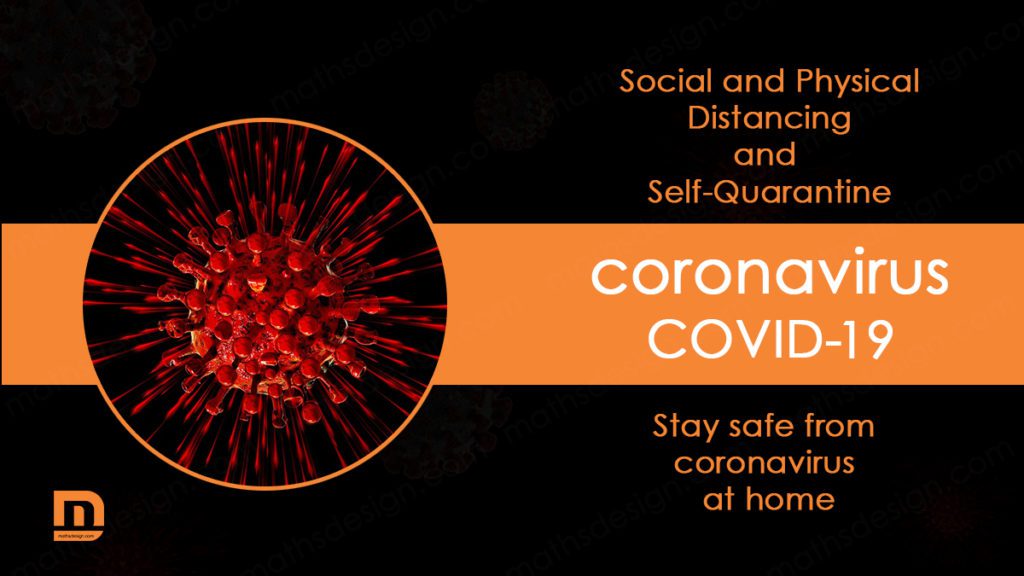CORONAVIRUS (COVID-19)
CORONAVIRUS (COVID-19)
CORONAVIRUS (COVID-19)
CORONAVIRUS (COVID-19) How it Spreads:
Coronavirus ( COVID-19) spreads primarily through contact with infected people when they cough or sneeze. It also spreads when a person touches a surface or objects with the virus and then touches their eyes, nose, or mouth.
How to Protect Yourself & Others:
Social and physical distancing:
Social distancing increases the physical space between people to avoid spreading illness. Staying at least six feet away from other people. Avoid larger crowds or crowded spaces. physical distancing while purchasing essential food and medical supplies. Shop alone, not in groups. Use delivery services where possible. Working from home instead of at the office. Closing schools or switching to online classes. Visiting loved ones by electronic devices instead of in person. Canceling or postponing conferences and large meetings. Lessens your chances of catching coronavirus
Self-quarantine:
People who have the following symptoms of acute respiratory disease (cough, sore throat, shortness of breath) and/or high temperature, feverishness, and muscle ache follow the instructions on self-quarantine. Health experts recommend that self-quarantine lasts 14 days. Two weeks provides enough time for them to know whether or not they will become ill and be contagious to other people.
You might be also asked to practice self-quarantine if you have recently returned from traveling to a part of the country or the world where COVID-19 is spreading rapidly, or if you have knowingly been exposed to an infected person. Self-quarantine involves using standard hygiene and washing hands frequently. Not sharing things like towels and utensils. Staying at home. Not having visitors and Staying at least 6 feet away from other people in your household
Once your quarantine period has ended, if you do not have symptoms, follow your doctor’s instructions on how to return to your normal routine.
Isolation:
If you are experiencing symptoms such as a cough (dry cough), sore throat, shortness of breath and/or high temperature, feverishness, or muscle ache, then stay at home and avoid all contact with other people. Isolation is a healthcare term that means keeping people infected with a contagious illness away from those not infected. Isolation can take place at home or a hospital or care facility. Special personal protective equipment will be used to care for these patients in healthcare settings.
You can come out of isolation 48 hours after you have been free of symptoms, and if at least ten days have passed since you experienced the first symptoms. Follow your doctor’s instructions on how to return to your normal routine.
Stay safe from the coronavirus
at
home





Recent Comments